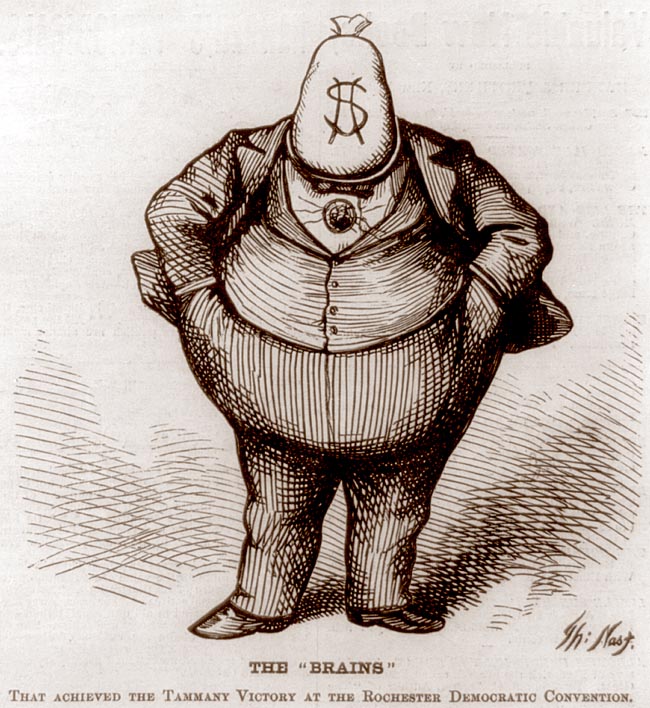Here’s a (mostly) tongue-in-cheek thought experiment from the Philosopher’s Beard aimed at solving the problem of wealth inequality in America. It’s ridiculous but is written with that blog’s customary dark wit and works like a piece of speculative fiction:
“Hence my modest proposal. We should first identify with some precision the category of what it seems reasonable to call rich i.e. those people whose capabilities for independence from and command over the rest of us crosses the threshold between enviable affluence and aristocratic privilege. That definition should be ‘absolutely relative’ rather than merely relative (e.g. we can’t just use the richest 1%, because there will always be a richest 1%). A good way to go might be to use some multiple of the median citizen’s wealth as a proxy for the distance from and power over ordinary citizens that defines problematic wealth. What that multiple should be is a matter for social scientists to investigate and democracies to debate, but, for the purposes of this discussion, let me suggest 30.
Exact numbers are tricky here because measuring wealth is highly subject to accounting definitions and methods. Another issue is that wealth defined in terms of net financial value of one’s assets depends on market conditions. For example, the assets of the middle-class are primarily their house and pensions, which have both been hit hard by the economic crisis; while the assets of the rich are primarily financial products, and thus prone to continuous fluctuations. In light of this, it might be best to set bands based on average data, and then revise them every few years to take account of long term trends. But for reference, the median American household’s wealth is presently around $120,000 (having declined 35% over the crisis), suggesting a cut-off of $3.5 million. (For context, $5.5 million is the present entry point to America’s richest 0.1%.) On the other side of the Atlantic, the slightly less unequal UK apparently has a median wealth of £200,000, suggesting a rather more generous wealth allowance of £6 million.
Then, when anyone in our society lands in the category of the problematic rich we should say, as at the end of a cheesy TV gameshow, ‘Congratulations, you won the economy game! Well done.’ And then we should offer them a choice: give it up (hold a potlatch, give it to Oxfam, their favourite art musuem foundation, or whatever) or cash out their winnings and depart our society forever, leaving their citizenship at the door on their way out. Since the rich are, um, rich, they have all the means they need to make a new life for themselves elsewhere, and perhaps even inveigle their way into citizenship in a country that is less picky than we are. So I’m sure they’ll do just fine. Still, we can let them back in to visit family and friends a few days a year – there’s no need to be vindictive.”

